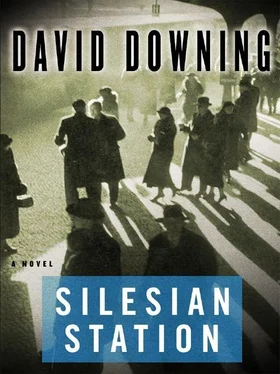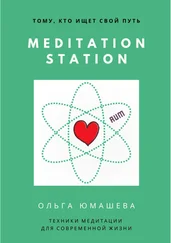David Downing - Silesian Station
Здесь есть возможность читать онлайн «David Downing - Silesian Station» весь текст электронной книги совершенно бесплатно (целиком полную версию без сокращений). В некоторых случаях можно слушать аудио, скачать через торрент в формате fb2 и присутствует краткое содержание. Жанр: Шпионский детектив, на английском языке. Описание произведения, (предисловие) а так же отзывы посетителей доступны на портале библиотеки ЛибКат.
- Название:Silesian Station
- Автор:
- Жанр:
- Год:неизвестен
- ISBN:нет данных
- Рейтинг книги:5 / 5. Голосов: 1
-
Избранное:Добавить в избранное
- Отзывы:
-
Ваша оценка:
- 100
- 1
- 2
- 3
- 4
- 5
Silesian Station: краткое содержание, описание и аннотация
Предлагаем к чтению аннотацию, описание, краткое содержание или предисловие (зависит от того, что написал сам автор книги «Silesian Station»). Если вы не нашли необходимую информацию о книге — напишите в комментариях, мы постараемся отыскать её.
Silesian Station — читать онлайн бесплатно полную книгу (весь текст) целиком
Ниже представлен текст книги, разбитый по страницам. Система сохранения места последней прочитанной страницы, позволяет с удобством читать онлайн бесплатно книгу «Silesian Station», без необходимости каждый раз заново искать на чём Вы остановились. Поставьте закладку, и сможете в любой момент перейти на страницу, на которой закончили чтение.
Интервал:
Закладка:
'It's good to see you too,' Russell said, offering his hand.
'Do you need your picture taken again?' Zembski asked. Russell had last visited the studio to pick up a fake passport which the photographer had created for him.
'I was given your telephone number by mutual friends,' he said softly. 'They said to ask for Martin.'
Zembski looked surprised, but only for a second. 'You need to get out?' he asked, glancing over Russell's shoulder as if fearing to find the Gestapo in close pursuit.
'Not me. A woman. Tell them it's "The Violinist". They'll know who she is. Tell them she has to get out now – there's a body involved. And tell them she's bringing them some useful information,' he added, hoping it was true.
The door opened behind them – a middle-aged couple. 'I'll only be a moment,' the Silesian told them, and turned back to Russell. 'Your photographs should be ready tomorrow,' he said. 'If you call in the afternoon, I'll let you know.'
Russell left the studio and walked down Berliner Strasse in search of lunch. Most of his fellow-Berliners were wearing resigned expressions that morning, but then they usually did. He ordered a bowl of potato soup and sausages at the first bar he came to, washed it down with a beer, and stepped reluctantly back into the summer sunshine. He spent a few minutes in the Hanomag working out logistics, and then headed north towards the Schade Printing Works. Leaving the car in a street nearby, he took one tram to Alexanderplatz and another out to Friedrichshain, arriving at the park almost half an hour early for his meeting with Wilhelm Isendahl. He sat on the agreed bench and reflected that while Wilhelm had performed brilliantly the previous evening, nothing would persuade him to work with the man again. Wilhelm was too damn sure of himself already, and each dart he planted in the neck of the Nazi bull would make him more so. He would come to feel invincible, and then the bull would get him.
Watching the young man walk up the path towards him, Russell hoped he was wrong. Wilhelm was his usual calm, efficient self. The van was parked opposite the gate, he said, complete with original number plates – the others were in the Spree. The four young women were staying with two different families. It had seemed better to keep them in pairs, so each girl had someone who understood what they'd been through. The one Russell had brought out – Miriam – had still not spoken, and spent most of her time staring into space. Ursel, Inge and Rachel were in better shape, though all seemed prone to sudden fits of weeping. Russell had been right – their captors had told the girls that if any of them tried to escape they would all be sent to concentration camps for having sexual relations with aryans.
'There's some money in the Beobachter,' Russell said, indicating the newspaper beside him, 'for the families who are looking after them.' It had been Effi's idea. He almost gave her the credit for it, but remembered in time that Wilhelm didn't know her name.
They agreed to meet in a week's time. Russell walked out to the gate, and stood for a while scanning the road for possible watchers. Satisfied, he strode towards the vehicle, anxiously searching for the telltale signs of a painted-out cross on the side of the vehicle. There were none.
He drove the van back across town to the Schade Printing Works. Thomas was in his office, looking as tired as Russell felt. He came out from behind his desk and embraced his friend, a glint of tears in his eyes. Once outside in the yard Russell gave him a blow-by-blow account of the rescue. Finding Miriam in her cupboard had Thomas closing his eyes in anguished disbelief, the appearance of the Standartenfuhrer had him opening them wide with alarm. 'But wouldn't he recognize you again?'
'I don't think so. He only saw us by torchlight, and we were disguised.'
'God, I hope you're right.'
'You're not the only one.'
'Where are the girls?'
'With families in Friedrichshain. Miriam's in a bad way. She hasn't said a word since we found her. I don't think she'll be going anywhere for quite a while.'
'We should tell her parents that she's alive, at least.'
'I will. I'll write to them at the address they gave me.' Russell looked at his watch. 'I have to pick up your lorry in Wedding. I should be back in an hour or so.'
'Where's your car?'
'Around the corner.'
'Then why don't you drive us both up there and I'll bring the lorry back?'
'Sold.'
Half an hour later they parted outside Hunder's gates. Russell followed the lorry as far as Lehrter Station, where he stopped off in search of coffee and a newspaper. The main buffet had none of the former, thanks to a storeroom robbery that afternoon – someone was stocking up for a future black market. The newspaper was full of quirky, inconsequential tidbits, as if the editor was clearing the decks for something altogether more serious.
He drove home by way of Altonaer Strasse. Sarah Grostein's house was bathed in the last rays of the evening sun, a picture of urban serenity. If any of Gruppenfuhrer Hochgesang's friends had come looking for him, they'd had the good manners not to break the door down. And if the body had flopped to the surface of the Landwehrkanal, the police were probably still trying to identify it.
Effi looked up anxiously as he came through her door, but relaxed when she saw it was him. 'Is everything all right?' she asked.
'So far.'
They went out to eat, returning in time to hear a special news broadcast. New proposals had been presented to the Polish Government, the official voice claimed. These were then outlined – Danzig's incorporation into the Reich, a plebiscite to decide the future of the Polish Corridor, extraterritorial roads and railways for the nation that lost that vote. But – and here the voice seemed torn between disbelief and righteous indignation – the German Government had received no reply to these eminently reasonable proposals. The Fuhrer, it seemed, had 'waited two days in vain for the arrival of a Polish negotiator.'
'As if he had anything better to do,' Effi said contemptuously. When they turned on the radio next morning, they discovered that Germany was now at war. The Polish Army had supposedly attacked a radio station in German Silesia, and the Fuhrer had responded with characteristic restraint, invading Poland from north, west and south. He would be explaining his actions to the assembled Reichstag later that morning.
Three hours later, Russell and his fellow American journalists gathered on the pavement outside the Adlon to watch the motorcade go by. September 1st was another bright sunny day, but only a handful of Berliners had ventured forth to cheer their leader.
'Where's Gavrilo Princip when you need him?' was Slaney's comment.
The loudspeakers were soon crackling, the familiar voice echoing down the wide streets of the old city. The Czechs had turned into Poles, but the plot remained the same. Whoever they were, their behaviour – even their very existence – was intolerable. He had ordered the German armed forces across the border, and had himself donned 'the uniform of a soldier' until victory was assured.
There were chants of Sieg Heil, but the Reichstag deputies were out of practice – there was none of the rhythmic baying that Sportspalast audiences excelled at. It would be an hour or more before copies of the speech were distributed, so most of the journalists headed indoors in search of a drink. Russell called Zembski on one of the public telephones, and was told that his film wasn't ready – he should try again tomorrow.
He drove down to Neuenburger Strasse, where Frau Heidegger was keen to discuss the coming hostilities. It took him twenty minutes to extricate himself, and another ten to help Siggi carry a new mattress up to Dagmar's apartment. He found Sarah reading one of Paul's John Kling detective novels, and told her that German forces were heading into Poland.
Читать дальшеИнтервал:
Закладка:
Похожие книги на «Silesian Station»
Представляем Вашему вниманию похожие книги на «Silesian Station» списком для выбора. Мы отобрали схожую по названию и смыслу литературу в надежде предоставить читателям больше вариантов отыскать новые, интересные, ещё непрочитанные произведения.
Обсуждение, отзывы о книге «Silesian Station» и просто собственные мнения читателей. Оставьте ваши комментарии, напишите, что Вы думаете о произведении, его смысле или главных героях. Укажите что конкретно понравилось, а что нет, и почему Вы так считаете.












